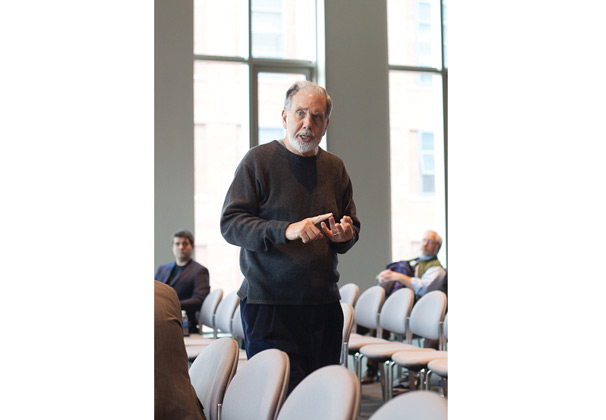UPDATE: Tisch begins discussions of a vote of no confidence
March 25, 2013

UPDATE 4:00 April 7, 2013: The Tisch faculty will have a forum with Sexton and the administration on April 30 to discuss the governance of the university.
“That meeting is an important opportunity for the faculty to engage directly with the president,” Tisch professor and faculty senator Awam Amkpa said. “Faculty will decide after its deliberations if indeed voting is a path they wish to undertake.”
Amkpa said the university will be notified after the forum when the faculty agrees on its next step.
——
Following the lead of the Faculty of Arts and Science and the Steinhardt School of Culture, Education and Human Development, the Tisch School of the Arts will begin discussions on the governance of NYU.
“Faculty have been sent all documents on pros and cons on the subject of faculty participation in university governance,” said Tisch professor and faculty senator Awam Amkpa. “The school will then decide if it wants to take a unanimous electronic vote on the subject.”
As part of an electronic correspondence between the Tisch faculty, arguments both for and against voting, as well as the American Association of University Professors’ bill of rights, have been presented. Amkpa said the school hopes to have a discussion and decide where it stands by April.
One of the concerns specific to Tisch faculty is the number of professors without tenure employed at the school. Tisch has four different types of faculty: tenure track, arts professors, teachers — or associate teachers — and adjuncts.
“Only tenure track professors are more fully engaged [in university governance], though some arts professors are as well, especially those in higher administrative positions,” said Amkpa. “Tenure and governance issues will always remain a big issue.”
The tenured faculty members in Tisch represent 35 percent of instructors.
Mary Campbell, the dean of Tisch, expressed her satisfaction with many of NYU President John Sexton’s initiatives, specifically NYU 2031.
“Our survival depends on our ability to build an Institute of Performing Arts that permits us to offer professional theater space, real studio space for the work of designers, actors and theater artists, production shops and adequately sized, column-free classrooms with high ceilings,” Campbell said.
Campbell also said Sexton has made Tisch a priority of the 2031 expansion plan, and many faculty members have shown their support.
“Over half of our departments have written letters to the Space Priorities Working Group to state their support of the IPA as a part of 2031,” she said.
However, Campbell did recognize that some faculty members who have signed the letters in support of the IPA still have concerns about parts of the 2031 plan.
“There are Tisch faculty members who have serious concerns about aspects of 2031 and would want to see those concerns addressed even as they support the IPA,” she said. “The university’s decision to convene a Space Priorities Working group to deliberate so carefully and thoroughly about all aspects of the plan strikes me as an example of faculty governance at its best.”
Campbell added that in the past, the administration has been very supportive of revisions to strengthen Tisch programs.
Not all the faculty members agree, and Amkpa said the overall opinion of the Tisch faculty is still unclear.
“Like our colleagues in the College of Arts and Science, we are deeply concerned about faculty governance and its share in university governance,” Amkpa said. “We will deliberate on the subject and decide on a stand which we will make public as soon as we take a vote.”
A version of this article was published in the Monday, March 25 print edition. Nicole Brown is investigative editor. Email her at n[email protected].























































































































































